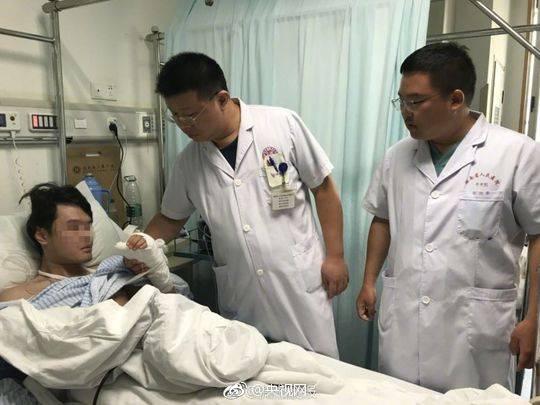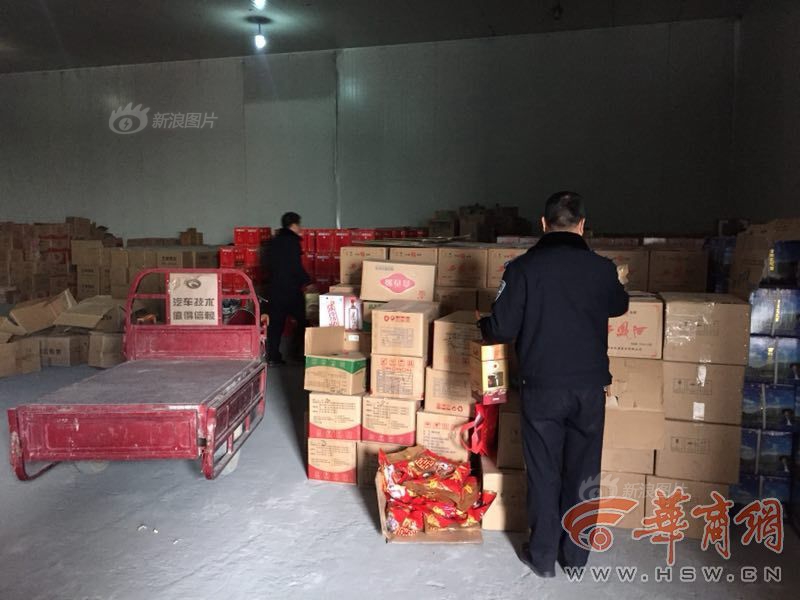
By MIKEY HIRANO CULROSS
Rafu Staff Writer

While it was normally obscured behind a camera, for decades, his face was among the most recognizable in Little Tokyo.
Mario G. Reyes, whose photographs painted a collective portrait of generations of Angelenos, died Jan. 23 at his home in Boyle Heights after a brief battle with cancer.
“Mario was a constant presence at every community event, large and small,” said Soji Kashiwagi of the Grateful Crane Ensemble. “He was there, wearing his signature khaki vest and shorts, long hair, glasses and always with his large camera in hand, snapping pictures left and right, capturing moments, recording our history.”
In his 40 years of service at The Rafu Shimpo,Reyes faithfully documented anything and everything happening in and around the Nikkei community. He photographed the ordinary happenings of everyday life – kids’ basketball, community picnics, 100th birthdays – as well as history-changing events and world leaders – the 1992 L.A. riots, President Barack Obama, the Emperor of Japan and the COVID pandemic.

Rafucolumnist Sharon Yamato described Reyes as “a gentle giant whose camera spoke louder than he ever did. His face didn’t show it, but you felt his love for our community deep inside.”
Born in Mexico City, his family relocated to Los Angeles before he entered grade school. After settling in East L.A., he attended Riggin Elementary and graduated from Roosevelt High School. It was then that his love of photography intersected with his first experiences within the Japanese American community.
Taking pictures at the Nisei Week Grand Parade in 1971, 15-year-old Mario snapped a shot of dancer Janice Aiso, and instantly fell in love with the grace and beauty of the art and tradition. Almost 40 years later, he was again on First Street photographing Janice, but by then she was known as classical Japanese dancer and instructor Sumako Azuma II, leading the parade as the official choreographer.
Just as he had done for Sumako, Reyes was there to chronicle the ongoing history of Little Tokyo and the Japanese American community – even if, at first, he felt less than welcomed.
“Because he’s not Japanese or Asian, he kind of felt like an outsider at first. He felt not trusted,” Kashiwagi explained. “But he kept showing up at event after event after event, year after year after year. His work was seen by all in **The Rafu,** and each photo spoke for itself. And over time, the ‘outsider’ was no longer on the outside. Instead, he became an insider. A friend. Family.”
Darlene Kuba, a close friend of more than 50 years since their days at Roosevelt High School, said Reyes had a kind, respectful nature, one that let him easily find comfort within several communities.
“Boyle Heights was like a melting pot – you had Asians, Hispanics, Blacks, Jewish, Italians,” Kuba explained. “It was a mixture of ethnicities and we all got along culturally, we played with each other growing up.”
Chris Komai, whose family is in its third generation of owning and publishing The Rafu,remembered the blessing of skills Reyes brought when the paper was making a push to publish more photos daily.
“The Rafuhad relied upon Toyo Miyatake Studios to take certain photos, and my uncle [then-publisher Aki Komai] and other staff members were supposed to take their own photos,” he remembered. “I was no good with a camera, so I hated taking pictures. It was an inefficient process, because in those days, cameras had film and film had to be processed. That took time and it could be expensive.”
Having worked previously on the printing crew, Reyes was already known to The Rafu,but when it came to to find an in-house photographer, the staff enthusiastically urged his hiring.
“When Mario applied for the job, he was prepared,” Komai said. “He not only explained that he wanted to be the staff photographer, but he envisioned providing the know-how to build Rafuits own darkroom, so film could be developed on site and right away. Further, he offered to create the first photography morgue (or archive) for the newspaper.”
Nisei Week shared a special place in Reyes’ heart, along with one group in particular: those Japanese Americans imprisoned by the U.S. government during World War II, for no reason other than their race. Year after year, his photos brought the people, sights and evolution of the annual Manzanar Pilgrimage to readers unable to attend in person.

Much of his work was in conjunction with the writing of the late journalist Martha Nakagawa, his closest and dearest partner. The pair tackled some of the toughest historical issues of the war, and the effects that lingered years later, on groups that included those Japanese Americans who refused to serve in the U.S. military after being drafted while imprisoned.
Komai described witnessing how Reyes treated each occasion as its own unique photo challenge, and it was his responsibility to solve it.
“More than once when I was at one of those events, he would look at me with a confident grin and say, ‘I got it.’”
Tall and well-mannered, Reyes could be unassuming, but always made sure that those he loved knew it without question. Former Rafugraphic designer Ayame Kousaka found a generous mentor and photo instructor in Reyes. For his 69thbirthday on Jan. 19, she visited his home with a cake and card.
“Thank you for taking the time to teach me so many lessons behind the camera and in life,” she wrote. Bed-ridden and unable to read it himself, he managed a gentle smile upon hearing her words.
L.A. Dodgers team photographer Jon SooHoo remembered Reyes as calm and professional amongst the throngs of media that can often become unruly.
“In my world of photographers coming to Dodger Stadium to photograph games and events, I could always count on Mario to be laid back and chill while he was on assignment for The Rafu,” he wrote.
For his contributions to the Nikkei community and Greater Los Angeles, Reyes received honors from Nisei Week, the Pacific Southwest District of the Japanese American Citizens League, and during his retirement party last May, citations from the City of L.A. and the California Legislature.
As much as anyone in the Little Tokyo community for the last several decades, Reyes’ love, intuition and dedication made him a fixture within the Japanese American community.
“He was in a way like Beyonce or Madonna. You only had to say his first name and everyone in the community knew who you were talking about,” Komai said.

A retrospective of his photos that opened last month at the Japanese American National Museum drew hundreds on its inaugural night. “Obras de Luz” represents the history of a community through his lens. Dozens of community leaders attended the opening, hoping to see Reyes, but unfortunately he was unable to attend.
Bill Watanabe, founder and former executive director of the Little Tokyo Service Center, said Reyes’ passing is a loss for an entire community.
“Mario’s lifelong work as a photographer helped the Nikkei community to see and remember its history, culture, and community spirit, and that is how Mario will be remembered as well,” Watanabe said. “For generations to come, people will see Mario’s work and not only remember what he chronicled but will remember Mario himself. He left a big part of himself to each of us.”
A celebration of life will be held on Saturday, Feb. 15, at 11 a.m. at SGI-USA El Monte Buddhist Center, 3401 Rio Hondo Ave., Suite 168, El Monte. Reyes requested no flowers or koden.
 San Diego JACL Gala to Mark 30th Anniversary of Civil Liberties Act
San Diego JACL Gala to Mark 30th Anniversary of Civil Liberties Act
 800 Traction Ave. Residents’ Final Evacuation Sale
800 Traction Ave. Residents’ Final Evacuation Sale
 Diamond Celebration at Rafu Bussan
Diamond Celebration at Rafu Bussan
 Senate Passes Hirono Bill to Strengthen Volcano Monitoring Capabilities
Senate Passes Hirono Bill to Strengthen Volcano Monitoring Capabilities
 Heart Mountain Interpretive Center Road Sign Installed
Heart Mountain Interpretive Center Road Sign Installed
 Kimi Sugiyama Human Service Award Recipients Named
Kimi Sugiyama Human Service Award Recipients Named
 90 Years Young
90 Years Young
 Little Tokyo Community Cleanup on Saturday
Little Tokyo Community Cleanup on Saturday
 Keiro Awards $500k in Grants to 41 Nonprofit Organizations
Keiro Awards $500k in Grants to 41 Nonprofit Organizations
 Obama: Akaka ‘Embodied the Aloha Spirit’
Obama: Akaka ‘Embodied the Aloha Spirit’
 Venice Dolphins, Girl Scout Troop 5325 Maintain VJAMM
Venice Dolphins, Girl Scout Troop 5325 Maintain VJAMM
 Applications Now Available for Kizuna's Leadership Program
Applications Now Available for Kizuna's Leadership Program
 Matsui and 57 Congressional Colleagues Call for JACS Funding
Matsui and 57 Congressional Colleagues Call for JACS Funding
 Memorial Day Services Set for Evergreen Cemetery
Memorial Day Services Set for Evergreen Cemetery
 Luncheon Gathering of Royalty
Luncheon Gathering of Royalty
 JANM Recognizes Two ‘Woman Warriors’
JANM Recognizes Two ‘Woman Warriors’
 Car Crashes Into Torrance Business; Driver Arrested
Car Crashes Into Torrance Business; Driver Arrested
 RNC Statement Celebrating APA Heritage Month
RNC Statement Celebrating APA Heritage Month
 ‘Wall That Heals’ to Be Displayed in Gardena
‘Wall That Heals’ to Be Displayed in Gardena
 800 Traction Ave. Residents’ Final Evacuation Sale
800 Traction Ave. Residents’ Final Evacuation Sale
A guide to the everyday technology worth being thankful forMy friend made a PowerPoint to pitch me to a room full of potential dates — and I actually liked itElon Musk reportedly wanted to buy 'justballs.com' because of courseDictionary.com's Word of the Year for 2019 is 'existential', and same'Watchmen' Episode 7: It's finally time to talk Doctor ManhattanInstagram will start cracking down on underage users (sort of)Amazon introduces a portable Echo speaker, but only in 1 countryHow to ensure your online activism has an offline impactMotorola One Hyper has a 64Grandma and stranger she accidentally texted celebrate Thanksgiving together for a fourth year Wordle today: The answer and hints for April 28 NYT's The Mini crossword answers for April 30 Rabbit R1: Release date, specs, AI features, and more Stephen King loves 'Baby Reindeer' so much he's written an essay about it How to cancel NordVPN and get a refund Best LEGO Store Star Wars Day deals 2024 Marseille vs. Atalanta 2024 livestream: Watch Europa League live for free Best Kindle deal: Buy two Kindle Scribes for 33% off WireGuard vs. OpenVPN: What’s the difference? Best Amazon deal: The Echo Pop is marked down to just $19.99
0.1737s , 14215.1953125 kb
Copyright © 2025 Powered by 【big booty gay sex videos】Enter to watch online.His Lens Captured the Heart and Soul of a Community,Global Perspective Monitoring